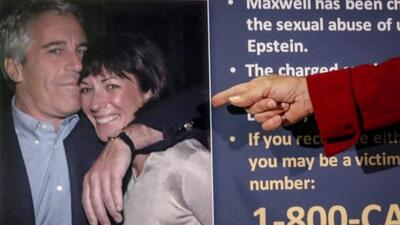
| Published July 5, 2025
In a move that many see as a final effort to sweep years of unanswered questions under the rug, the FBI and Department of Justice have released their long-awaited findings on the death of Jeffrey Epstein. According to the report, Epstein had no client list, did not blackmail anyone, and died by suicide — effectively shutting down every major theory that’s circulated since 2019. But for millions of Americans, particularly those skeptical of federal institutions, this conclusion raises more red flags than it resolves. With Ghislaine Maxwell convicted of trafficking minors to unnamed individuals, and years of sealed documents and unexplained connections to powerful elites, the government’s sudden insistence that “there’s nothing to see here” is only fueling more distrust.
📰 Key Takeaways
-
DOJ & FBI officially reject conspiracy theories
A newly obtained DOJ/FBI memo confirms:-
Epstein did not maintain a “client list”.
-
There’s no evidence he blackmailed powerful individuals.
-
Surveillance footage shows no signs of foul play—his death was a suicide, consistent with the medical examiner’s 2019 ruling.
-
-
Surveillance footage scrutiny
Investigators reviewed cell-block and hallway camera footage from 10:40 pm on August 9 to 6:30 am on August 10, 2019, finding no suspicious entries or actions that would support a murder theory. -
No new charges pending
Beyond Ghislaine Maxwell (serving 20 years for sex trafficking), no further prosecutions are expected linked to Epstein or his associates -
Pushback against conspiracy narrative
Some MAGA-aligned influencers (e.g., Kash Patel, Dan Bongino) were vocal in advance, but the memo found no credible evidence for assassination or blackmail claims. -
Pam Bondi’s video claims under scrutiny
Former AG Pam Bondi had stated the FBI reviewed “tens of thousands” of videos involving Epstein and minors. However, AP reporting found no independent confirmation, casting doubt on the claim. -
Maxwell may be cooperating
Investigative reporting suggests Maxwell — currently imprisoned — might be sharing information or evidence (e.g., video/photographic content) to aid prosecutors in identifying additional people involved.
Financier Jeffrey Epstein appears in a photograph taken for the New York State Division of Criminal Justice Services’ sex offender registry on March 28, 2017, and obtained by Reuters on July 10, 2019.REUTERS
Photos of Jeffrey Epstein’s suicide were obtained by “60 Minutes” and aired Jan. 5, 2020.CBS 60 MINUTES
Epstein was seen in a body bag after his suicide in 2019.William Farrington for NY Post
 Implications
Implications
The FBI and DOJ’s final word on Jeffrey Epstein — declaring no client list, no blackmail operation, and a confirmed suicide — has sparked immediate skepticism among many on the right who have long viewed the Epstein case as emblematic of elite protection and two-tiered justice.
1. Deep State Narrative Reinforced
For conservatives distrustful of federal institutions, the findings appear to confirm suspicions of a coordinated cover-up. Many on the right see Epstein’s death as too convenient for the powerful figures potentially implicated, and the government’s definitive dismissal of all conspiracy theories only deepens mistrust in the DOJ and FBI.
2. No Accountability for the Elite
Despite Ghislaine Maxwell’s conviction for trafficking minors “to no one,” the FBI now claims there were no clients. Right-leaning critics argue this defies logic — if there were victims and a trafficker, there must be buyers. The lack of charges or public scrutiny of Epstein’s high-profile associates (some of whom were connected to global politics, finance, and royalty) fuels the belief that elites are untouchable.
3. Pam Bondi’s Claims Undermined
Former Florida AG Pam Bondi previously claimed the FBI possessed tens of thousands of videos implicating prominent individuals. The new report makes no mention of such evidence, prompting concern on the right that either Bondi was misinformed — or that damning material is being deliberately buried.
4. Public Gaslighting Concerns
To many in conservative media and political circles, the abrupt conclusion — dismissing years of eyewitness accounts, suspicious circumstances, and unresolved questions — feels like a top-down attempt to gaslight the public into accepting an unsatisfying narrative. Right-leaning influencers have pointed out that “conspiracy theories” often stem from unanswered questions, not blind paranoia.
5. Continued Demand for Transparency
Rather than closing the case, the FBI’s conclusion may reignite calls from the right for full disclosure — including the release of Maxwell’s potential cooperating materials, sealed court documents, and unredacted logs of Epstein’s private flights and property visitors.
 Overall Takeaway:
Overall Takeaway:
For many Americans — particularly on the right — the official Epstein findings do little to restore faith in the justice system. Instead of bringing closure, the DOJ and FBI’s firm dismissal of a “client list” and blackmail operation only deepens suspicion that the truth is being concealed to protect the powerful. The notion that Epstein acted entirely alone, trafficked minors to no one, and just happened to die under the most improbable security lapses continues to strain credibility.
In the eyes of many conservatives, this isn’t just about Epstein — it’s about a government that expects the public to stop asking questions, even when the answers don’t add up. Until every piece of evidence is made public — including Maxwell’s records, sealed documents, and unexplained flight logs — the case won’t be closed. Not for the American people.








Be the first to comment